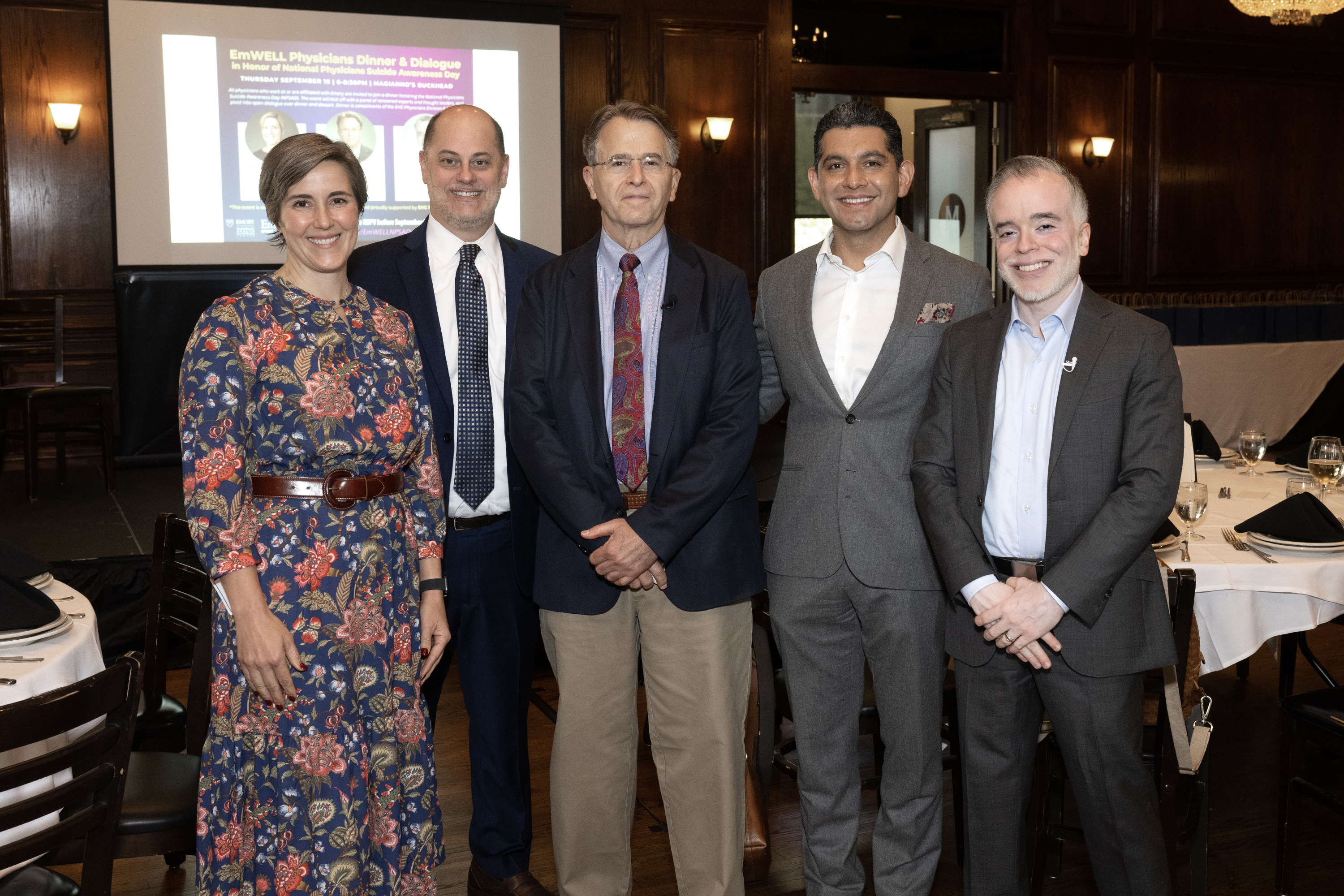More than 100 Emory physicians gathered on Thursday, Sept. 19, to raise awareness of a topic that is critically important, yet rarely discussed: physician suicide.
September 17 is National Physician Suicide Awareness Day. Nationally, it is estimated that 300-400 physicians die by suicide each year and more than half of physicians know a physician who either considered, attempted or died by suicide in their career. The COVID-19 pandemic put a spotlight on the staggering rates of physician burnout and depression across the United States, but the issue persists.
“Prioritizing the well-being of the health care workforce has never been more important, and the WHSC Office of Well-Being (EmWELL) is dedicated to being a national leader in this area,” says Chad Ritenour, MD, chief medical officer at Emory University Hospital and co-chief well-being officer. “We are happy to support candid conversations like this one that reduce the stigma of discussing mental health and the human challenges we all face.”
The event, which was organized by EmWELL through its physician’s workgroup in partnership with the Physician Division of Emory Healthcare, featured a panel of speakers sharing their personal stories and discussing the need for more open dialogue and support for change.
Speakers included Stef Simmons, MD, chief medical officer at the Dr. Lorna Breen Heroes' Foundation; Paul Earley, MD medical director of the Georgia Professional Health Program (GA PHP); and Dhaval Desai, MD, co-lead of the EmWELL physicians workgroup at Emory Saint Joseph’s Hospital, director of hospital medicine at Emory Saint Joseph's Hospital and assistant professor of hospital medicine at Emory School of Medicine. CNN correspondent Nick Valencia facilitated the discussion, incorporating anecdotes from other health care related stories he covered, as well as aspects of his personal story.
Reflecting on the event, Desai says, “I feel the conversations were very powerful, and if we align and support the idea that it is okay for physicians to ask for their own mental health support, then we will all be better positioned to live and take the best care of our patients.”

Amaka Eneanya, MD, chief transformation officer for Emory Healthcare, says, “I was struck by the national statistics surrounding the rate of physician death due to suicide. We have a duty to ensure each of our physicians remains fully supported and that we put policies and procedures in place to minimize any barriers individuals may face when seeking help.”
Much work remains to address clinician burnout on all levels, including system-level changes and cultivating a culture that prioritizes well-being and decreases mental health stigma. This work is the fundamental reason for the creation of the Emory Office of Well-Being and aligns with its vision to collaborate and create sustainable changes in partnership with leaders across Emory.
A recording of the full event and dialogue is available to see here.
For more information about well-being and mental health resources available to Emory employees, visit the well-being hub, or call 988 or visit https://988lifeline.org/ for the suicide and crisis lifeline.

